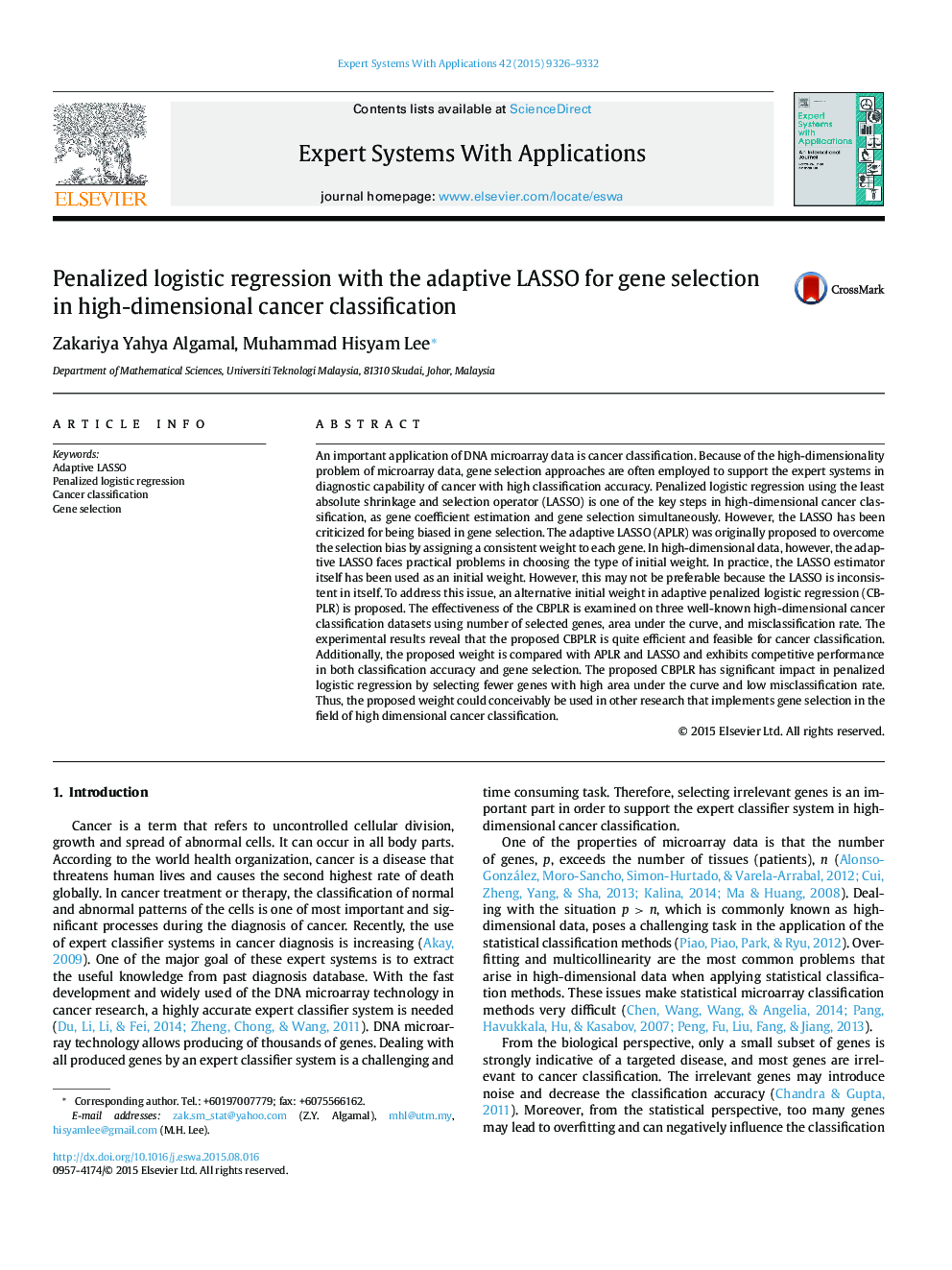| Article ID | Journal | Published Year | Pages | File Type |
|---|---|---|---|---|
| 10322169 | Expert Systems with Applications | 2015 | 7 Pages |
Abstract
An important application of DNA microarray data is cancer classification. Because of the high-dimensionality problem of microarray data, gene selection approaches are often employed to support the expert systems in diagnostic capability of cancer with high classification accuracy. Penalized logistic regression using the least absolute shrinkage and selection operator (LASSO) is one of the key steps in high-dimensional cancer classification, as gene coefficient estimation and gene selection simultaneously. However, the LASSO has been criticized for being biased in gene selection. The adaptive LASSO (APLR) was originally proposed to overcome the selection bias by assigning a consistent weight to each gene. In high-dimensional data, however, the adaptive LASSO faces practical problems in choosing the type of initial weight. In practice, the LASSO estimator itself has been used as an initial weight. However, this may not be preferable because the LASSO is inconsistent in itself. To address this issue, an alternative initial weight in adaptive penalized logistic regression (CBPLR) is proposed. The effectiveness of the CBPLR is examined on three well-known high-dimensional cancer classification datasets using number of selected genes, area under the curve, and misclassification rate. The experimental results reveal that the proposed CBPLR is quite efficient and feasible for cancer classification. Additionally, the proposed weight is compared with APLR and LASSO and exhibits competitive performance in both classification accuracy and gene selection. The proposed CBPLR has significant impact in penalized logistic regression by selecting fewer genes with high area under the curve and low misclassification rate. Thus, the proposed weight could conceivably be used in other research that implements gene selection in the field of high dimensional cancer classification.
Related Topics
Physical Sciences and Engineering
Computer Science
Artificial Intelligence
Authors
Zakariya Yahya Algamal, Muhammad Hisyam Lee,
